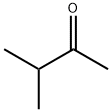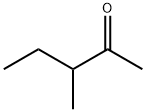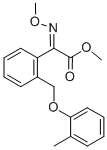A5408912
4-Methyl-2-pentanone , AR,99.0% , 108-10-1
Synonym(s):
MIBK;Methyl isobutyl ketone;4-Methyl-2-pentanone;MIK;Isobutyl methyl ketone
CAS NO.:108-10-1
Empirical Formula: C6H12O
Molecular Weight: 100.16
MDL number: MFCD00008938
EINECS: 203-550-1
Update time: 2022-07-08
PRODUCT Properties
| Melting point: | -80 °C (lit.) |
| Boiling point: | 117-118 °C |
| Density | 0.801 g/mL at 25 °C (lit.) |
| vapor density | 3.5 (vs air) |
| vapor pressure | 15 mm Hg ( 20 °C) |
| FEMA | 2731 | 4-METHYL-2-PENTANONE |
| refractive index | n |
| Flash point: | 56 °F |
| storage temp. | Store at +5°C to +30°C. |
| solubility | water: soluble20g/L, soluble in alcohol, miscible with oils. Soluble in Propylene glycol and Glycerin. |
| form | Liquid |
| color | APHA: ≤15 |
| Specific Gravity | 0.80 |
| PH | 7 (20°C) |
| Odor | Pleasant; mild, characteristic; sharp; non-residual; ketonic. |
| explosive limit | 1.2-8%, 93°F |
| Odor Threshold | 0.17ppm |
| biological source | synthetic |
| Odor Type | green |
| Water Solubility | 17 g/L (20 ºC) |
| λmax | λ: 335 nm Amax: 1.00 λ: 340 nm Amax: 0.50 λ: 360 nm Amax: 0.15 λ: 380 nm Amax: 0.02 λ: 400 nm Amax: 0.01 |
| JECFA Number | 301 |
| Merck | 14,5207 |
| BRN | 605399 |
| Henry's Law Constant | 2.56 at 25 °C (batch stripping method-GC, Kim et al., 2000) |
| Exposure limits | TLV-TWA 205 mg/m3 (50 ppm); STEL 300
mg/m3 (75 ppm) (ACGIH); IDLH 3000 ppm
(NIOSH). |
| Dielectric constant | 13.0(Ambient) |
| Stability: | Volatile |
| LogP | 1.3-1.9 at 20℃ |
| CAS DataBase Reference | 108-10-1(CAS DataBase Reference) |
| IARC | 2B (Vol. 101) 2013 |
| NIST Chemistry Reference | Methyl isobutyl ketone(108-10-1) |
| EPA Substance Registry System | Methyl isobutyl ketone (108-10-1) |
Description and Uses
4-Methyl-2-pentanone has a pleasant odor. May be prepared by hydrogenation of mesityl oxide over Ni at 160 - 190°C; also by oxidation of methyl isobutyl carbinol.
In paints, glues, and cleaning agents; used in the plastic and petrol industries
Safety
| Symbol(GHS) |   GHS02,GHS07 |
| Signal word | Danger |
| Hazard statements | H225-H319-H332-H335 |
| Precautionary statements | P210-P233-P240-P241-P304+P340+P312-P305+P351+P338 |
| Hazard Codes | F,Xn,T |
| Risk Statements | 11-20-36/37-66-39/23/24/25-23/24/25 |
| Safety Statements | 9-16-29-45-36/37-7 |
| OEB | A |
| OEL | TWA: 50 ppm (205 mg/m3), STEL: 75 ppm (300 mg/m3) |
| RIDADR | UN 1245 3/PG 2 |
| WGK Germany | 1 |
| RTECS | SA9275000 |
| Autoignition Temperature | 840 °F |
| TSCA | Yes |
| HS Code | 2914 13 00 |
| HazardClass | 3 |
| PackingGroup | II |
| Hazardous Substances Data | 108-10-1(Hazardous Substances Data) |
| Toxicity | LD50 orally in rats: 2.08 g/kg (Smyth) |
| IDLA | 500 ppm |





